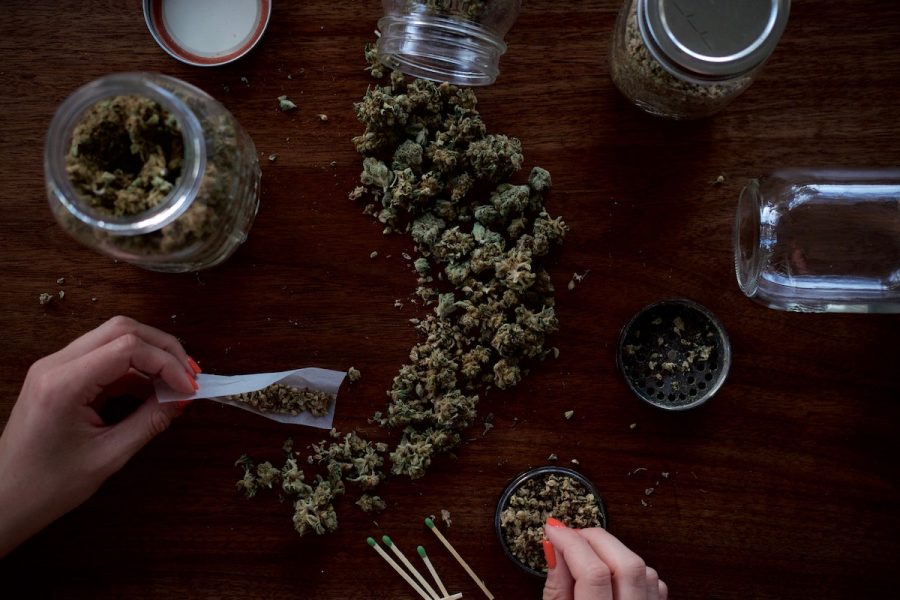The blurry line between marijuana and sexual assault
Research on alcohol and sexual assault has made great strides in prevention but what about research on other substances?
Photo by Submitted
According to Anthony S. Floyd, a research scientist at the University of Washington, marijuana is the most common drug reported (besides alcohol) when drugs are involved in a sexual assault.
Thanks to the #METOO movement, women and men are becoming more aware of the plague of sexual assault, as well as the many different forms it can take place in.
By now it is common knowledge that there is a connection between alcohol and sexual assault. People are way more likely to commit a rape or sexual assault when either one or both parties are under the influence.
There have been great strides in the information flow, educating people on the parasitic relationship between alcohol and sexual assault, which is fantastic.
But when it comes to educating youth on the concerns of sexual assault and other forms of substance use, the flow of information comes to a screeching halt.
As much as professionals and experts try to discourage substance abuse in teens and young adults, drug culture remains a prosperous industry, and no drug is as popular as marijuana.
According to Anthony S. Floyd, a research scientist at the University of Washington, marijuana is the most common drug reported (besides alcohol) when drugs are involved in a sexual assault.
Furthermore, peak marijuana use is more likely to occur later in adolescence to early adulthood, converging in the age range that has the highest rates of sexual assault and rape.
As marijuana becomes more and more decriminalized, its popularity increases as well. Therefore, it is crucial that information on sexual assault and marijuana must be spread across college campuses and high schools.
There is a huge lack of research in regards to marijuana and consent, which leads teens and young adults to see it as a less dangerous substance than alcohol.
Patricia Maarhuis, the coordinator of Alcohol and Drug Counseling, Assessment and Prevention Services, said that memory, perception and motor movement are affected when using marijuana, making it useful to a perpetrator.
Although it may seem that marijuana’s effects are not as harsh as alcohol’s effects, the drug can still warp perception. People may make decisions sexually they wouldn’t feel comfortable doing sober.
The bottom line is: if someone is impaired to the point where they can’t properly understand their decisions, they cannot give consent.
Alcohol, marijuana, huffing glue — whatever your vice is — it’s important to understand when someone is inebriated, they cannot consent.
By the way, I do not condone any of this substance use, especially huffing glue which will damage the nerves in your brain and then you will really never be able to give consent — like ever again. Seriously, don’t do it.
Listen, the world we live in is not safe, especially for women and minorities and it sucks.
As much as we may try to convince ourselves these things happen to other people but would never happen to us, we couldn’t be more wrong.
A young woman was just kidnapped and raped earlier this month by a police officer — the people that are supposed to protect us when no one else does.
The worst part is she did everything right, she used all the safety measures that have been drilled into every single young girl in this country since we were kids and it still didn’t help her.
Sexual assaults will not stop until our society learns to teach men not to rape instead of teaching girls how to not get raped — that is the reality.
I’m not trying to kid myself. I know that no amount of information on sexual assault and drug use will fix the fundemental problems in our society but for the time being, if it can help just one person, then it mattered and it was worth it.
If you are the victim of sexual assault, you are not alone and people are here to help you with complete confidentiality.
If you need help or someone to talk to, call The National Sexual Assault Hotline at 1-800-656-4673.
You don’t have to go through this alone.
Hinrichs can be reached HINRICHA0521@uwec.edu.

Allison Hinrichs is a third-year journalism and multimedia communication student. This is her fourth semester at The Spectator. Allison loves being outdoors and anything that gives her an adrenaline rush. She loves hiking, rock climbing, snowboarding and photography.



Jason Harvey • Nov 1, 2023 at 6:59 am
Great Post! while research on the relationship between other substances and sexual assault is a growing field, it is vital for society to continue investing in these studies. By understanding the complexities of substance-involved sexual assaults, communities can develop comprehensive prevention, intervention, and support strategies to protect individuals and create safer environments. Ongoing research is essential for staying ahead of evolving trends and patterns related to substance use and sexual assault.